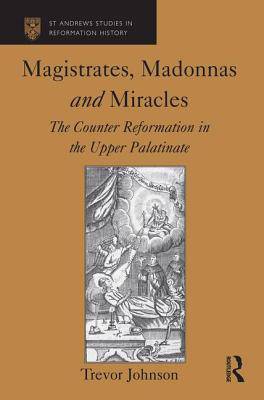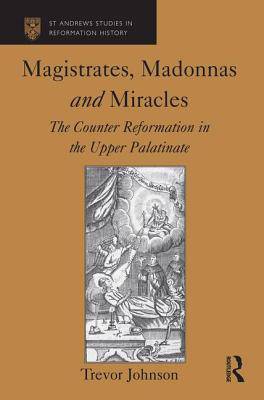
- Retrait gratuit dans votre magasin Club
- 7.000.000 titres dans notre catalogue
- Payer en toute sécurité
- Toujours un magasin près de chez vous
- Retrait gratuit dans votre magasin Club
- 7.000.0000 titres dans notre catalogue
- Payer en toute sécurité
- Toujours un magasin près de chez vous
305,45 €
+ 610 points
Description
In 1621, in one of the earliest campaigns of the Thirty Years' War, the South German principality of the Upper Palatinate was invaded and annexed by Maximilian of Bavaria, director of the Catholic League. In the subsequent years the eyes of Europe looked to the fate of this erstwhile hub of the 'Calvinist international', as Maximilian steadily moved to convert its population to Catholicism. This study is the first account in English to focus on this important instance of forced conversion and the first account in any language to place the political impact of the Thirty Years' War into the broader context of the Upper-Palatinate's religious culture examined over the longue durée, from the later sixteenth to the mid-eighteenth centuries. The book analyses the rich unpublished sources of church and state from Bavarian and Roman archives, as well as printed texts in varied genres to reconstruct the region's sacred system and to gauge the effectiveness of the campaign of conversion. This allows the study to address questions of how the re-catholicisation was achieved, how a religious culture infused with the spirit of the Counter Reformation developed and how this change shaped the identity of its people. More than this, however, the book also uses the Upper Palatinate case-study to draw broader conclusions about the strengths and limitations of the Confessional model, and suggests other ways of looking at religious change and identity formation in early modern Europe which embraces popular religious culture and voluntary religion, as well coercion. As such the book offers much, not only to scholars of early modern Germany, but to all with an interest in the formation, adoption and imposition of religious identity during this period.
Spécifications
Parties prenantes
- Auteur(s) :
- Editeur:
Contenu
- Nombre de pages :
- 378
- Langue:
- Anglais
- Collection :
Caractéristiques
- EAN:
- 9780754664802
- Date de parution :
- 28-10-09
- Format:
- Livre relié
- Format numérique:
- Genaaid
- Dimensions :
- 156 mm x 234 mm
- Poids :
- 707 g

Les avis
Nous publions uniquement les avis qui respectent les conditions requises. Consultez nos conditions pour les avis.






